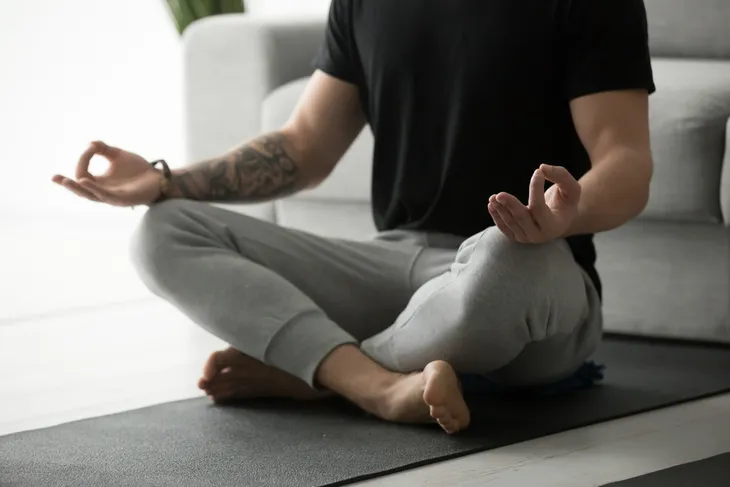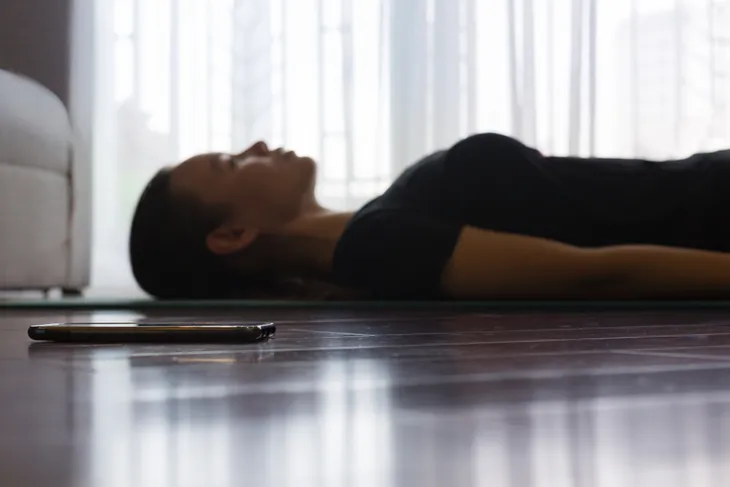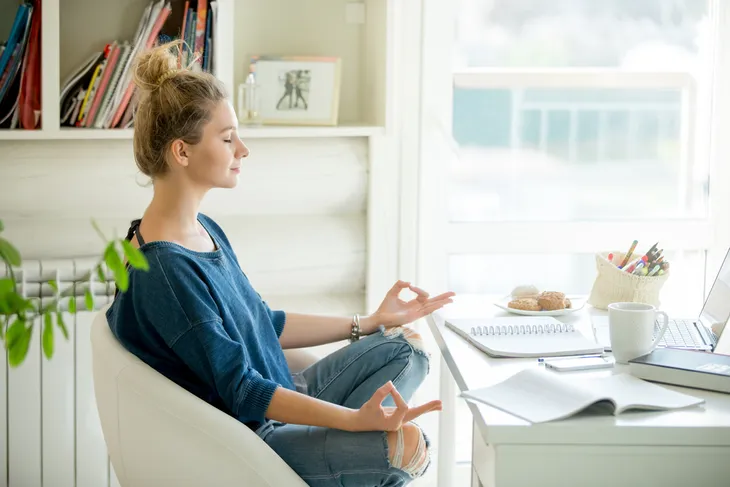With hundreds of circling through your mind from moment to moment, it’s no wonder many seek out the solace of meditation to calm the chaos and live in now.
But what does meditation mean to you? Do you consider mediation a form of escapism or perhaps you avoid it for fear of becoming too selfish, or worse, a hypnotized zombie void of emotions?
Here are eight common misconceptions surrounding meditation…
1. Myth: Meditation is All About Concentration
While it’s certainly true that concentration is a byproduct of regular meditation practice—we don’t actually use concentration to meditate. It’s quite the opposite! Meditation asks us to block out, or limit, mental chatter that can be so overwhelming (i.e., pending appointments, all the chores you need to do, the work piling up at the office, etc.). Meditation is about letting go of earthly obligations, and taking a moment of relaxation in stillness and silence so that you can concentrate better when you are dealing with the stresses of life.
2. Myth: Not Everyone Can Meditate
Meditation is like exercise and like food—there is really a type of mediation to match every goal and taste. So if you have trouble sitting alone in a silent room and blocking out all earthly distractions (a Zen-style of meditation), try exploring other types of meditation—such as Kundalini (or breath) mediation, Qi gong, visualization exercises, or even a walking meditation, which challenges you to be present as you walk, focus on your surroundings, and feel the energy and benefit of exercise on your body and mind.
3. Myth: I’m Bad at Mediation
Blocking out the chaotic thoughts and negative talk in you life can be challenging, and like anything else, practice makes perfect. That’s why no one person is so bad at mediating that they should throw in the towel. I make it a point never to judge my meditation practice by the time and quality of my meditation. Instead, I consider the after affects of my practice—for instance, did I get more work done in the afternoon? Did I sleep better?
4. Myth: Mediation is a Religious Ritual
If mediation brings to mind shorn-headed monks or yogis in robes, sequestered in a far-away monastery or ashram, and void of any earthly possessions—you may be overthinking this! Meditation is available to everyone and anyone who is striving to reconnect with a simpler, more peaceful and less stressful way of life.
5. Myth: Meditation Encourages Escapism
If you fear that meditation is a way of running away from life’s problems—think again! Rather, meditation provides the tools to face and overcome life’s problems (i.e., fear, anxiety, and panic). Mediation practice also teaches us to accept life and people for what and who they are, and provides the inner strength necessary to live in the present with confidence.
6. Myth: I Don’t Have Time to Meditate
Sure, most of us would claim that we don’t have time to add extra obligations to our day. However, even if your spare time is rare, you can benefit from taking a few minutes to unplug and relax. Try leaving the office for a 10-minute walk to forget about work and clear your head, or escape to a gentle yoga class over lunch and return more energetic and focused. Those who say they have no time to meditate can usually benefit the most from a brief time out.
7. Myth: Meditating is Selfish
In order to meditate for even 10-minutes you need to take a bit of time for yourself. For many, that might be considered selfish when it’s time you could be studying, finishing that work report, or spending time with your kids or spouse. If a brief moment of meditation seems self-indulgent to you; consider the effect it will have on others when you return more focused, calm, happier, and able to devote your whole attention to them.
8. Myth: Meditation Strips Us of Real Emotions
The goal of any type of mediation is to help you live and experience the now, including the emotions that come from present experience. The idea that meditation strips us of real emotions is contrary. Rather, meditation practice teaches us to be more in tune with our emotions, our goals, and helps us to disengage from unhealthy negative talk, and emotionally draining people and situations.











